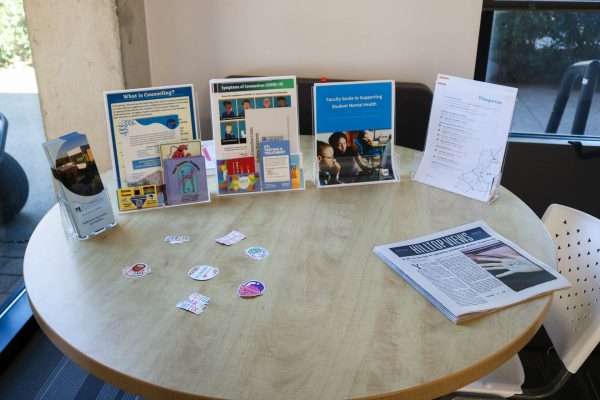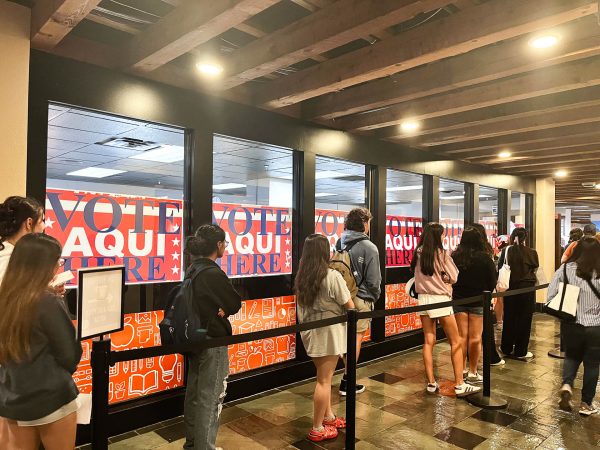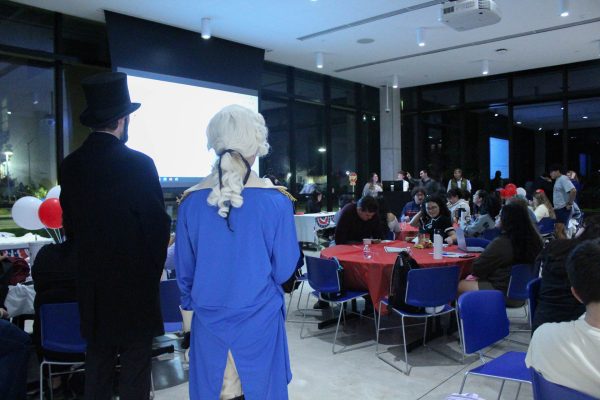SXSW continues to spark safety concerns
After reports of overcrowding, violence and noise complaints at this year’s installment of South-by-Southwest, the media and festival attendees raised concerns about what measures should be taken to improve conditions for next year.
This year’s SXSW saw concert-goers breaking barriers and rushing the gates at Auditorium Shores. Riot squads were called in to keep unruly crowds at bay at The Beauty Bar, and reports of traffic nightmares circulated throughout the week-long festival.
Attendance at the festival was up by 30 percent this year, according to estimates made by the Austin Police Department. In addition, the influx of free shows and parties brought thousands of people downtown, on top of those who were officially registered.
“Austin is a small town, and SXSW is a bit of a shock to the system,” said Kara Weinstein, an office manager at Home Slice Pizza, a business that has hosted bands during the festival.
What SXSW Means For the City
One of the most important aspects about the festival is the overall economic impact it has on Austin. SXSW 2010 brought an estimated $113 million to the city, according to a study conducted by Greyhill Advisors.
Local business owners see SXSW as a time when their business increases drastically.
“There’s a big boom during SXSW because everyone is going between downtown and South Congress,” said barista Matthew Mares, who works at Dominican Joe’s, a business that also hosted musicians during the festival.
Tony Shum, director of economic development at the Austin Chamber of Commerce, said estimates showed more than 100,000 people were from out of town this year, based on hotel occupancy and a few other factors.
“The city gets millions of dollars in tax revenue from hospitality alone,” he said. “Local businesses and companies also benefit from getting new clients and customers, and they also benefit from networking.”
Shum explained that the City of Austin puts in a great amount of time and energy into the festival. He said the city spent close to $30,000 to promote itself at events and that city officials waived more than $200,000 of permit fees to attract more acts and companies.
Shum said while the festival put strains on many Austin businesses, it is overall good thing overall.
“It’s one of those situations where it’s like, ‘wouldn’t it be great if we had too much business’?” he said.
Safety Concerns and Overcrowding
While the economic benefits of SXSW are undeniable, this year brought its share of safety concerns due to overcrowding.
“No one expected a 30 percent increase in attendance this year,” Cpl. Anthony Hipolito of the Austin Police Department said. “It led to more pedestrian traffic and a greater number of vehicles on the road.”
Hipolito believes the increased attendance went hand in hand with the increase in arrests this year. There were 47 arrests at this year’s festival, close to three times as many as the 14 in 2010. Hipolito said the majority of the arrests made were for public intoxication, but that the arrest total at SXSW was less than this year’s Mardi Gras celebration.
Shum said overcrowding at this year’s festival put a major strain on Austin.
He also said the overabundance of cars caused many of the traffic woes faced throughout the course of the week.
However, Shum believes that the way SXSW operates will allow Austin to accommodate growth if the upward trajectory continues.
“The beauty of SXSW is that the conference and events take place all over town. SXSW can divert a lot of its growth to other places,” he said.
Noise Complaints
Home Slice Pizza has brought bands from all over the country to its Music by the Slice parties for five years now. It functions as a fundraiser for Austin-based youth development program Urban Roots, and there had never been any problems during these parties. This year’s festival, however, brought the company its first noise complaint.
“This is the first time we’ve ever received a complaint,” Weinstein said. “We’ve always gotten our permits and inspections. It’s not like we’re having a bunch of metal bands playing.”
As a result of the complaints, Home Slice told the bands playing at their parties they would have to perform acoustically in order to not violate their permit. Weinstein said that some groups were forced to cancel because of this.
“Several of the bands had to pull out because they weren’t ready to play an acoustic set,” she said. “They were a bit shocked.”






